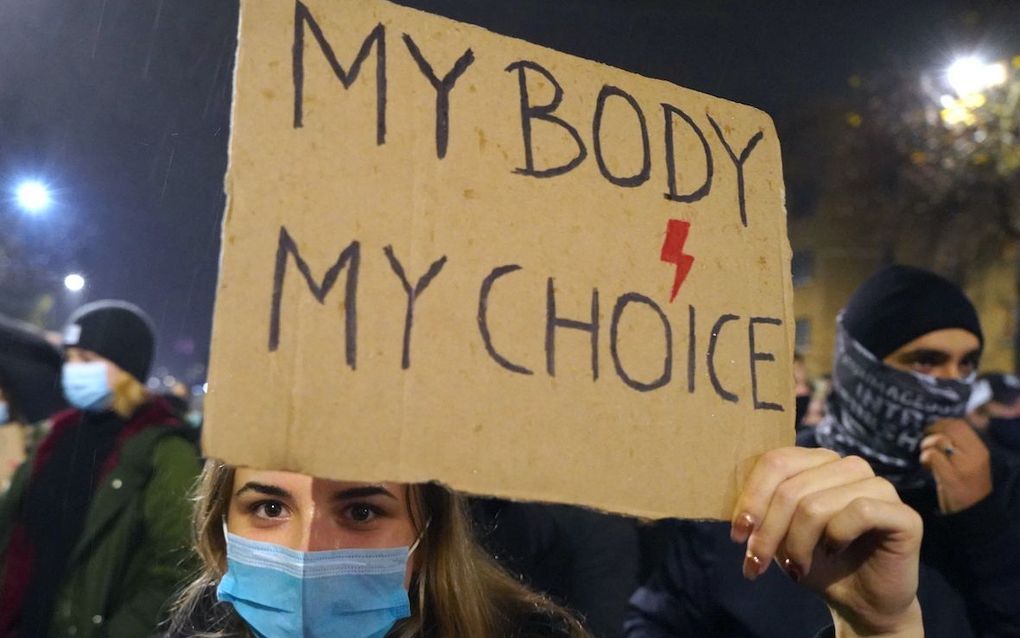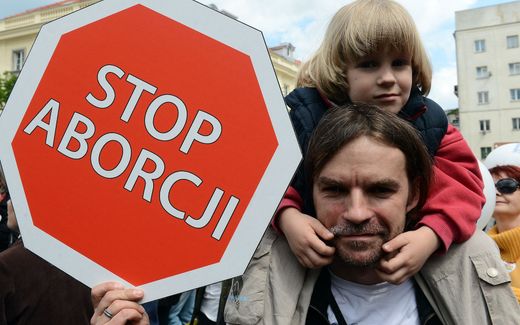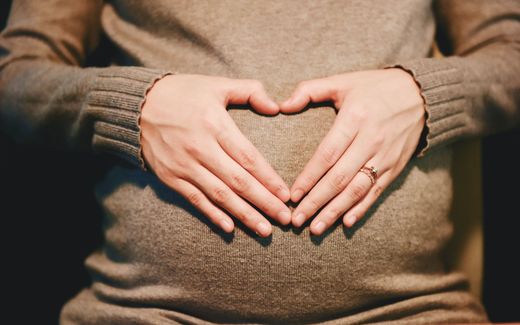Brussels will vote about abortion as a fundamental right
24-06-2021
European Union
Lieke Pippel, RD

A Polish lady claims abortion as a personal right. Photo AFP, Janek Skarzynski
European Union
The European Union does not interfere in national abortion laws. Or does it? The European Parliament will debate and vote this week on a report that calls abortion a human right. That is problematic, argue right-wing parties in Parliament and pro-life organizations.
What exactly does the report on abortion in the European Parliament state?
The report focuses not only on abortion but on sexual and reproductive health and rights in the EU in general. It is a package of proposals, recommendations and requestsin this area. For example, For example, it is proposed to improve sex education and increase access to contraceptives and safe menstrual products.
Abortion falls under sexual and reproductive health as well. The report calls for access to safe and legal abortion since this is a woman's fundamental right. Therefore, women should be able to exercise this right, and medical personnel should not deny them this medical care.
Why is Parliament coming up with this initiative now?
The Parliamentary Committee on Women's Rights and Gender Equality, led by Croatian MEP Predrag Fred Matic, began working on the report last year. The committee argues that the report comes at a crucial moment in the EU, because women'r rights are increasingly under threat. The committee argues that the report comes at a crucial moment in the EU, because women'r rights are increasingly under threat.
In addition, the current corona pandemic is given as a reason for the report According to the parliamentary committee, the sexual and reproductive health and rights of women worldwide are not sufficiently protected during the pandemic. That has to change after the pandemic, hence the report.
How important is the report in Brussels?
The report is officially called an own-initiative report. If a majority in Parliament votes for it on Thursday, it will call on the European Commission to introduce new legislation. The Commission must then decide within three months whether or not to submit a proposal. If the Commission refuses to do so, Parliament does not have the competence to enforce such new legislation.
The Commission has previously stated several times that it has no competences regarding abortion. The European member states are responsible for their abortion laws, but must respect the fundamental rights of women, the Commission has warned.
If the Commission would introduce new legislation, there is still a possibility that the Council would reject it. Especially Poland, where the abortion law was restricted at the beginning of this year, does not want Brussels to interfere in the national abortion laws.
In the end, the report will most likely be a clear political signal from Parliament to the member states.
What is the probability that a majority in Parliament support the report?
There are two camps in the European Parliament: the left supports the report, the right rejects it. It is expected that the proponents of the report will succeed in creating a majority in Parliament. However, much still depends on how the European People's Party (EPP) votes, but that is not yet definite at the moment. However, it is clear that the Christian Democrats are divided on the subject.
Of the Dutch political parties, the CDA and the ChristenUnie belong to the EPP. ChristenUnie MEP Peter van Dalen has indicated that he will vote against the report because abortion is not a human right, and the initiative conflicts with national competencies. The CDA says it has not yet taken a final decision; that comes after a meeting on Thursday
What are the objections to the report?
The statement in the report that abortion is a human right has in particular been criticized. A group of MEPs disagree with this statement because this is not in line with international and European treaties. According to the MEPs, an ideological agenda is behind defining human rights.
In addition, the opponents point out the differences in the competences of the EU and tjose of the member states. Abortion is something that only member states can and should make decisions about and Brussels should not interfere.
They also strongly oppose the idea that medical personnel cannot not deny a woman an abortion. This could endanger the rights of those who object on grounds of conscience, which is in contrast with the recognized right to freedom of thought, conscience and religion in the EU.
The criticism of the report does not mean that that the opponents of the report are against the entire inititiative. For example, they support efforts to stand up for women's health and rights by combating female genital mutilation and child marriage.
What is MEP Matic's response to this criticism?
Predrag Fred Matic said in an interview with news site Agence Europe on Monday that he has been accused of promoting abortion, but that he does not do that.. Women have the right to choose for themselves. According to him, that is different from being supportive of abortion.
In addition, Matic stated that he does not want to deprive medical staff of the right to object on grounds of conscience. He argues that he only asks member states to keep in mind that there is at least one doctor in hospitals who is willing to perform an abortion.
According to the Croatian MEP, the criticism of opponents is not because they are against abortion, but because they do not want to discuss women's right and health., but because they do not want to debate women's rights and health.
When has abortion been discussed in Parliament before?
In 2013, the Portuguese MEP Edite Estrela presented her report that calls for safe and legal abortion in the EU. At the time, it was expected that the report would also win a majority in Parliament, but that was not the case.
Pro-life organizations and conservative parties took action before the Parliament voted on the Estrela report. They presented a contradictory report stating that sexual and reproductive health and rights fall within the compentence of member states. A majority supported that report and unexpectedly opposed Estrela's initiative.
Related Articles





